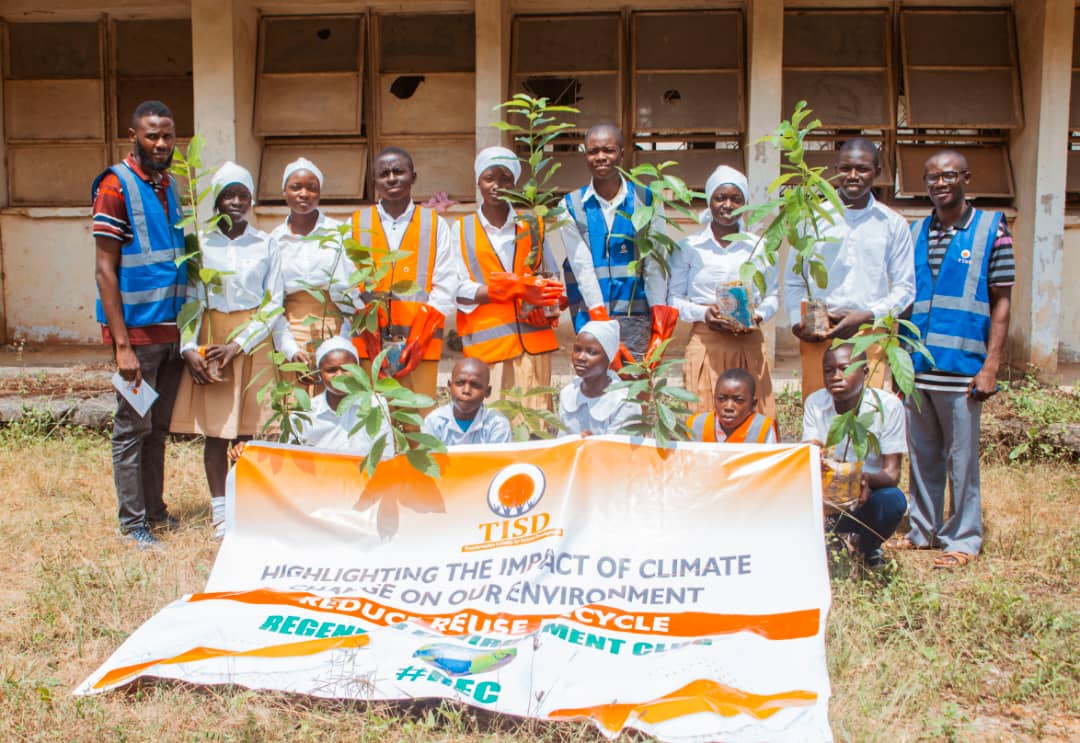A Non Governmental Organization, Transformation Initiatives for Societal Development (TISD), has introduced “Regener8 Environmental Club” in three Government Senior and Junior Secondary Schools in Southern Kaduna with the empowerment of 36 students to fight climate change.
The local government includes Jema’a, Kaura and Zango Kataf Local Government Areas of Kaduna State with the benefiting schools include: Government Secondary Schools Zikpak, Manchok and Tafawa Balewa Memorial College Samaru Kataf.
Speaking during the inauguration of the clubs in the schools, the Executive Director of the NGO, Mr. Paul Ayis, said the aim was to increase awareness about environmental issues, taking actions to protect the environment and increase environmental literacy among students in secondary schools, to reduce the effects of climate change.
He explained that the Regener8 Environmental Club, which is made up of twelve students and two patrons as members in each of the three schools, has its motto, “Reduce, Reuse and Recycle”.
Ayis challenged the pioneering members to rededicate themselves to the task of impacting positively to their society by enlightening not just their fellow students, but also their families and immediate communities.
Earlier, one of the facilitators of the program, Miss Magdalene Habiba Musa, noted that the activities of man on earth has negatively affected the ozone layer, causing climate change.
She advocated the involvement of all and sundry by recycling plastic waste, reducing carbon emission, innovating new ways of reusing waste and to invest more on adaptation measures to protect the society from the impact of climate change.
The leaders of the Club in the three benefiting schools pledged not to take for granted the opportunity they have to save the world from total collapse, even as they pledge to sustain the initiative.
During the inauguration of the clubs, all the 36 benefiting students were given free economic seedlings of different varieties of Cashew, Guava, Avocado, Mango, Orange among others to plant within the school premises and nurture to maturity, which is part of a move to encourage tree planting.











